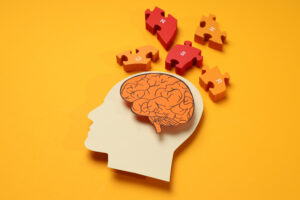Author
DR. MICHAEL S. TRAYFORD
Dr. Michael S. Trayford is a Board Certified Chiropractic Neurologist and Neurofeedback Specialist with over 20 years of experience in the practice of advanced functional neurology. He is one of the most highly sought-after brain rehabilitation specialists because of the life-changing outcomes his patients consistently experience. After over a decade in private practice and working alongside other pioneers in the field, Dr. Trayford developed his multimodal intensive brain training and rehabilitation program built around the science of Neuroplasticity – the ability of the brain to learn and grow dependent upon the stimulation it receives from its environment. He later founded APEX Brain Centers to combine his ground-breaking rehabilitation approach with a unique patient and caretaker-centered care model. Under Dr. Trayford’s leadership, APEX Brain Centers has successfully treated thousands of patients and earned the reputation of a world-renowned brain training and rehabilitation practice. Since its inception, Dr. Trayford has been a leader of the Brain Training revolution treating patients worldwide. In addition, he is a published journal contributor and international lecturer. His experience with various patients of all ages and neurological conditions has given him a unique perspective on brain health and human performance. He is also well-versed in collaborating with other health care professionals, making him an invaluable asset to any care team. Dr. Trayford was awarded the Functional Neurologist of the Year distinction by the International Association of Functional Neurology and Rehabilitation, where he is a proud member and conference lecturer. Currently, he serves on the Advisory Council for the Dementia Society of America and the Board of Directors for the International Society for Neuroregulation and Research. He is also a servant leader who has dedicated his adult life to serving multiple communities through Rotary International and other notable causes. When he’s not treating patients, Dr. Trayford usually reads or researches anything related to the brain, human performance, and leadership. He also loves spending time outdoors with his wife Denise, their two daughters, and dogs in the beautiful mountains of western North Carolina. https://www.linkedin.com/in/drmichaeltrayford/
6 Comments
Leave a Comment
Find Out if Brain Rehabilitation Can Help
Get your questions answered and understand treatment options by one of our board-certified physicians with extensive functional neurology experience.
Consultations are free, 15-minute phone calls, scheduled Monday through Friday.
Recent Blog Posts
Optimizing Brain Health with Metabolic and Nutritional Therapy: A Comprehensive Guide
Living with Cognitive Decline: Tools for Management and Improvement
Cognitive Decline: From Causes to Solutions – Concise Insights and Strategies
Nutrition and Your Brain: Understanding Metabolic and Nutritional Therapy
Brain Food: The Impact of Metabolic and Nutritional Therapy on Brain Health
How Metabolic and Nutritional Therapy Can Improve Your Cognitive Function
Optimizing Brain Health with Metabolic and Nutritional Therapy: A Comprehensive Guide
By DR. MICHAEL S. TRAYFORD
Living with Cognitive Decline: Tools for Management and Improvement
By DR. MICHAEL S. TRAYFORD
Cognitive Decline: From Causes to Solutions – Concise Insights and Strategies
By DR. MICHAEL S. TRAYFORD
See if APEX Can Help
Schedule a free, confidential consultation with one of our board-certified physicians.




Do you have to have some kind of learning disability or brain injury or add or adhd or can any normal adult benefit from this type of brain training?
Anyone can benefit. It is always best to take care of your brain before challenges arise.
Hello. My oldest son and middle son have a diagnosis of Autism spectrum disorder as well as ADD/ADHD. My oldest also faces the additional challenge of Generalized anxiety. My youngest boy is showing signs of ADHD. I have read a lot about neuroplasticity and believe it could improve a lot of my boys behaviors and focus. I am inquiring about using this program at home. The cost, the availability, the ease of use. Please contact me at your earliest convenience. Thank you. Sincerely, Christine Quirke
Hello Christine. Apologies for the delay, this was not seen earlier. It would be best for you to call the office to discuss. This is a fantastic program, although there would need to be a certain degree of training before it could be implemented successfully at home. 828.708.5274. Thank you for your inquiry.
The one thing I don’t see here is behavior disorder due to dementia. Please comment whether you have any options for improvement in this area
Sharon:
The Interactive Metronome is a brilliant tool for many behavioral disorders and cognitive disorders, including dementia. It works with timing, attention, focus, impulse control, etc.; which are critical factors when it comes to learning and behavior. Thing is, for this particular tool, much depends on the level of impairment and one’s ability to complete the necessary tasks. As such, we have many more tools to work with these issues should one not be able to perform on this particular modality; although the hope is to get them there eventually if they cannot. Feel free to call us at 828.708.5274 if you’d like to discuss further.